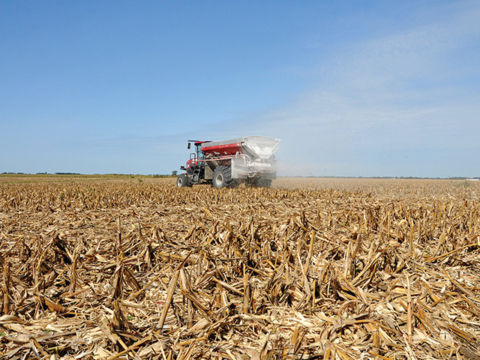Explore our blog featuring articles about farming and irrigation tips and tricks!
Are You Under-fertilizing Your Crop?

By: Sonja Begemann
Before finalizing your nutrient plans, carefully consider the impact big yielding crops has on phosphorus and potassium levels in fields. While nitrogen might typically be the first nutrient you think about when it comes to high yields, it’s important to consider other nutrient needs as well.
“When guys have 200-bu. corn and 70-bu. beans they’re taking about 130 lb. of phosphorus and 152 lb. of potash/potassium out of the soil [in that two year rotation],” says Bob Perry, general manager, Perry Agricultural Laboratory, a soil testing lab in Bowling Green, Mo. “A lot of folks are just putting on 100-lb./100-lb.—all of a sudden they’re behind.”
Crops need phosphorus in full form early for root development and as the plant grows to promote healthy stalks, stems and flower production. Potassium plays a vital role in plant growth as well, and deficiency can result in stunted growth, defoliation and weakened response to weather changes such as drought.
“When we have poor fertility we’re much more susceptible to any deviation in weather,” Perry says. “Going through any stress is harder when you don’t have the fertility you need.”
Perry recommends soil to have at least 50 lb. of phosphate per acre (25 ppm) and 300 lb. of potassium per acre (150 ppm) each season.
“Before farmers apply nutrients each crop season, they need to take soil tests and past yields into consideration,” explains Sally Flis, director of agronomy at The Fertilizer Institute. “If they haven’t tested in a while they should—it helps determine if there are certain fields or areas of fields they need to focus on more.”
Use soil tests and tissue tests as the road maps to good fertility. In addition, keep yield goals in mind as they affect nutrient levels needed for the crop. Take a look at the chart on the right to see how much nitrogen, phosphorus and potassium it takes on average to grow 1 bu. of corn.
Stay up to date on all T-L news and get alerts on special pricing!


